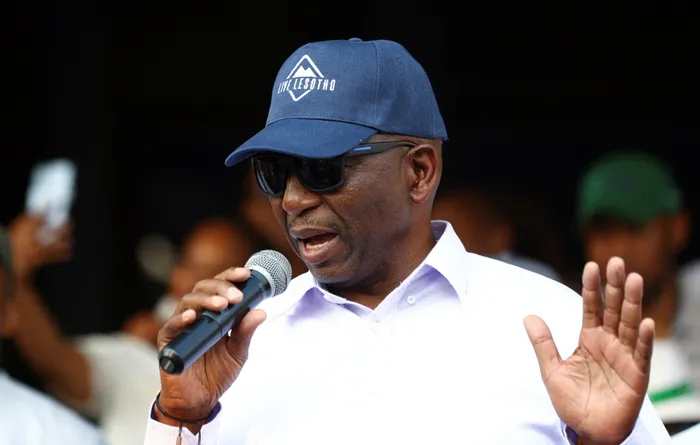African elections in 2022

Picture: Siphiwe Sibeko/REUTERS – Sam Matekane, leader of Lesotho's Revolution For Prosperity (RFP) political party addresses his supporters as counting of votes continues, following the Lesotho's parliamentary election in the capital Maseru, Lesotho, October 8, 2022. The RFP formed a coalition government with two other opposition parties.
Picture: Stringer/REUTERS – Angola’s President and leader of the People's Movement for the Liberation of Angola (MPLA) ruling party, João Lourenço, casts his vote in a general election in the capital Luanda, Angola August 24, 2022. Political analysts say that a second term for Lourenço might have disappointed many voters keen to break with five decades of one-party rule, but many would admit he has done much to tackle corruption within its ranks.
By Chad Williams
This year, several African countries went to the polls to elect new leaders in legislative and parliamentary elections. Elections in Africa in 2022 have remained largely peaceful without major incidents. The political landscape is evolving with the rise of social media, global issues, and climate change. Young people will continue to play a crucial role in the future of elections on the Continent. Let’s look at some of the elections that took place in 2022.
Angola
Angola’s People’s Movement for the Liberation of Angola MPLA won 124 of the 220 National Assembly seats. The National Union for the Total Independence of Angola (Unita) finished second, with 90 seats. It was the party’s smallest margin of victory in an election.
The nation’s largest opposition party, the National Union for the Total Independence of Angola (Unita), gained 43.95 percent of the votes cast, according to the CNE, the electoral commission.
Political analysts say that a second term for Angolan President João Lourenço might have disappointed many voters keen to break with five decades of one-party rule, but many would admit he has done much to tackle corruption within its ranks.
Lesotho
Lesotho’s Revolution for Prosperity (RFP) party, a party set up only six months ago, won 56 out of 120 seats in Lesotho’s Parliament in elections held on October 7.

The RFP formed a coalition government with two other opposition parties, namely the Alliance of Democrats (AD) and the Movement for Economic Change (MEC) – after securing 56 seats in the election and needing to court other parties to control Lesotho’s 120-member parliament.
The All Basotho Convention party, which led the outgoing government, won only eight of 120 seats in parliament.
Kenya
Elections in Kenya this year were largely peaceful, despite a dispute over election results by veteran politician Raila Odinga, who made his seventh stab at Kenya’s top job, only to fail again.
William Ruto won 50.49 percent of the vote, compared with 48.85 percent for veteran opposition leader Raila Odinga.
Odinga has unsuccessfully stood for election as President of Kenya five times, although in each of these elections he has contested the result because of allegations of election fraud.

Raila Odinga lodged a petition at the Supreme Court challenging the presidential election results, which saw his rival Deputy President William Ruto declared president-elect.
Kenya’s Supreme Court upheld the August 9 election of William Ruto as president in a unanimous decision, Chief Justice Martha Koome said, throwing out a petition brought by opposition leader Raila Odinga.
Equatorial Guinea
Eighty-year-old Teodoro Obiang Nguema Mbasogo, who has served as president of Equatorial Guinea since August 1979, secured a sixth term as president of the small African country in elections held on 20 November, extending his 43-year rule of the oil-producing county.

Obiang’s ruling Democratic Party of Equatorial Guinea (PDGE) faced down Esono Ondo, leader of the opposition Convergence for Social Democracy party.
The African Union (AU) deployed an its election observation mission to the country to observe its presidential, legislative and municipal elections.
Chad Williams is a former multimedia journalist with the African News Agency (ANA)
This article was exclusively written for The African. To republish, see terms and conditions.